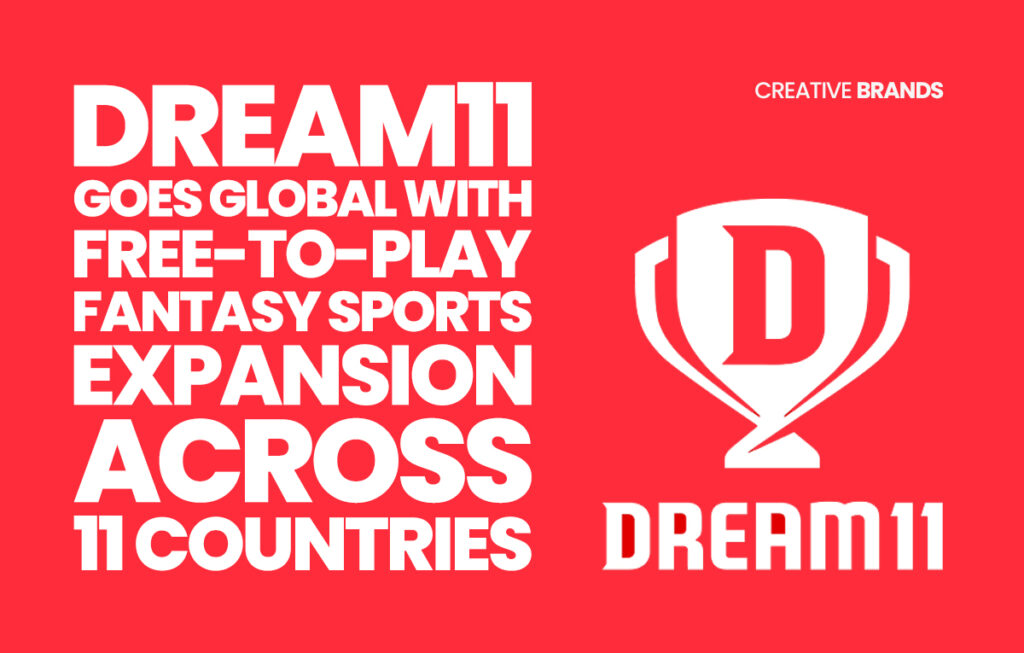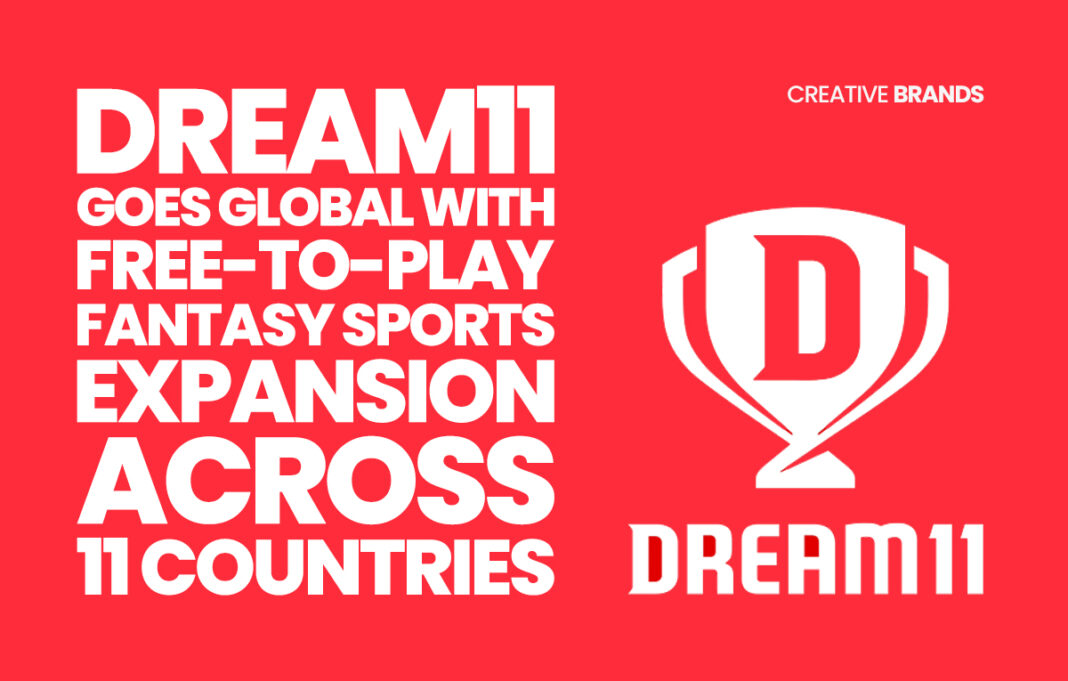Dream11 has launched in 11 international markets, including the US, UK, Australia and UAE, in its first major global expansion. Following India’s real-money gaming ban, the platform has pivoted to an ad-driven free-to-play model, onboarding brands like Swiggy and Tata Neu while targeting over 250 million users with new engagement features like Flex.

Dream11, India’s fantasy sports behemoth, has formally stepped onto the global stage with the launch of its platform in 11 international markets — a milestone that signals not just geographic expansion, but a fundamental strategic reinvention. The platform is now live in the United States, United Kingdom, Australia, the United Arab Emirates, New Zealand, Canada, Malaysia, Nepal, Bangladesh, South Africa, and Sri Lanka — all without real-money gaming. That last part is critical: Dream11’s expansion is not a replication of its original business, but the unveiling of its post-regulation future.
Just a year ago, Dream11 was one of India’s most profitable internet businesses — and almost entirely because of paid games. “Ninety-five per cent of our revenues and 100 per cent of our profits came from cash-based contests,” co-founder Harsh Jain had said earlier. But India’s new online gaming rules abruptly banned real-money fantasy formats, dismantling the revenue engine that had built Dream11 into a national sensation. Overnight, the fantasy sports pioneer was forced into reinvention.
The company has responded with a sweeping pivot to an ad- and sponsorship-led free-to-play model — and its first-ever international launch is built entirely on that architecture. In all 11 new markets, Dream11 will operate strictly as a non-monetary fantasy engagement platform. No betting, no entry fees — just scale, engagement and brand monetisation.
The decision reflects two things: resolve, not retreat — and a recalibration of what defines leadership in fantasy sports in 2025. India’s largest fantasy platform is no longer betting on revenue per paying user. It’s betting on total engagement. On reach. On becoming the default home of sports interactivity — whether or not money is involved.
Brands move in — fast
If India’s paid fantasy users brought Dream11 money, its free users are now bringing something just as valuable: advertisers.
Over the past quarter, the company has rapidly onboarded brands including Swiggy, Tata Neu, and astrology platform Astrotalk — all seeking precise exposure during live sports windows. Dream11’s ad inventory is built for high-intent targeting — banner slots inside match drafts, sponsored fantasy contests, even branded leagues.
“Over the years, many brands have shown strong interest in partnering with Dream11, and now, after our pivot to free-to-play fantasy sports, we have begun onboarding them selectively,” said Vikrant Mudaliar, Chief Marketing Officer of Dream Sports.
The appetite is obvious. India alone has 10 million daily active Dream11 players. The overall user base has crossed 250 million. Nearly 70 per cent are 18–35 — the single hardest demographic to reach through television. Another 25 per cent are 35–60, signalling deep mass adoption across metros and Tier 2 and 3 towns. It’s not just young tech-native men — it’s families, cross-generational cricket homes, and rising IPL-only sports households.
Dream11’s international move gives brands a fresh canvas — the same engagement format, but now with a globally dispersed South Asian diaspora and local sports ecosystems in play.
A fantasy platform behaving more like a media company
With no real-money mechanics, Dream11 is increasingly positioning itself as a participatory sports media environment — closer to YouTube + ESPN + social gaming than to betting or gaming apps.
This is also where “Flex”, its newest feature, fits in. Flex allows users to create their own fantasy leagues, set their own rules, and effectively become micro-broadcasters and community organisers. It is one step closer to a future where Dream11 is not just reacting to the sports schedule — but enabling fans to shape their own interaction formats. Personalised IPL? Hyperlocal football leagues? Women’s cricket fan-only rooms? All mathematically possible.
Moving into 11 countries at once — instead of via a slow-testing rollout — signals confidence not just in product maturity, but in regulatory safety. The company has made clear that real-money games will not be introduced in these new markets. This isn’t a workaround. It’s a direction.
The launch will also be a litmus test for how deeply fantasy engagement depends not on gambling, but on identity — the sporting ritual of proving one’s prediction intelligence within a tribe. If Dream11 manages to generate the same loyalty without winnings or losses — it may well have cracked the future of fantasy sports before anyone else.
In two years, this moment may be remembered not as Dream11 escaping regulation — but as its true beginning as a global fan interaction platform rather than a betting-adjacent app. In a world where regulators are watching, and advertisers are paying, that evolution feels precisely timed.
Discover more from Creative Brands
Subscribe to get the latest posts sent to your email.






